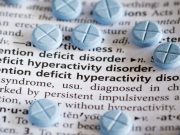Tag: Attention Deficit Disorder (ADHD)
ADHD Medications Also Improve Quality of Life
Improved QoL seen with both stimulant and nonstimulant medications
Symptoms, Cognitive Abilities, Demographics Tied to Age of ADHD Diagnosis
IQ, symptom presentation, and demographic factors all related to later age of diagnosis
ADHD Meds May Help Control Opioid Use Disorder in Pregnancy
Additional benefits include increased buprenorphine initiation, decreased methadone initiation, and improved buprenorphine retention
ADHD Patients Could Face Disrupted Access to Meds Following Fraud Case
FDA Approves First Liquid, Nonstimulant ADHD Treatment
The centrally acting alpha2-adrenergic agonist is approved for patients ≥6 years
Pharmacological Treatment of ADHD May Cut Some Forms of Criminality
Study finds reduction in impulsive-reactive behavior-related crimes but not those with intent or planning
Medications Still Effective for Treating ADHD in Children
Although most effective for symptoms, medications are also tied to adverse effects
Acetaminophen Use During Pregnancy Not Linked to Neurodevelopmental Disorders
In sibling control analyses, acetaminophen use not linked to risk for autism, ADHD, or intellectual disability
ACC: Small but Significant Risk for Cardiomyopathy Seen With ADHD Meds
Risk for cardiomyopathy increased with duration of treatment for adults aged 20 to 40 years with ADHD
ADHD Medications Linked to Reduction in Psychiatric Hospitalizations
Reduced risk for psychiatric, nonpsychiatric hospitalization seen with use of ADHD meds among adolescents, adults with ADHD














